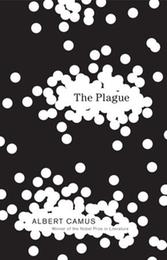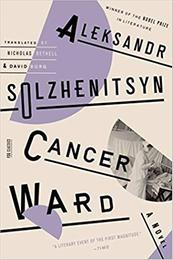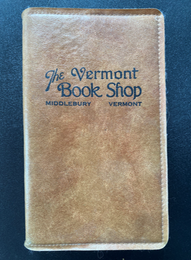 As we all adjust to a new world of social distancing, self-isolation and quarantines, advice is coming at us from every direction. And some of it is bad, like a post I saw yesterday from a Facebook friend that began: "I just posted something that may or may not be true...."
As we all adjust to a new world of social distancing, self-isolation and quarantines, advice is coming at us from every direction. And some of it is bad, like a post I saw yesterday from a Facebook friend that began: "I just posted something that may or may not be true...."
Here in New York, Governor Cuomo has compared COVID-19 to a tsunami hitting the state and its medical infrastructure. Keeping watch from my upstate shelter-in-place office, I've felt it more like a terrible wind whipping through the book trade, and we are all in the process of learning how to sail as gusts shift drastically by the hour.
Some decisions are out of our control, subject to daily updates on what we can and cannot do with our lives and how we conduct business now. At Shelf Awareness, we're trying to keep you informed about the book trade's responses at all levels. Other publications are offering work tips ("Panicked about working from home? Here's how to do it right"), consumer recommendations ("How to help local businesses crushed by coronavirus: 4 things you can do right now) and even humor ("Working from Home During a Global Pandemic Bingo").
As anyone reading this column already knows, books are a survival strategy, too. All of us--booksellers, publishers, writers and more--have been blessed with the vocation of getting books into the hands of readers, and that mission is even more important now as we find ourselves increasingly cut off from direct human connection and seeking alternatives.
 Many readers understandably opt for escape from the fierce gales--apocalyptic headlines and social media panic--with books that take them away from it all, if only for a brief time. Others are reading into the wind. Increased interest in titles like Emily St. John Mandel's Station Eleven, Stephen King's The Stand and Dean Koontz's The Eyes of Darkness are symptoms of the latter strategy, I suspect. The Plague by Albert Camus, which I've been rereading myself, has also gotten a lot of attention.
Many readers understandably opt for escape from the fierce gales--apocalyptic headlines and social media panic--with books that take them away from it all, if only for a brief time. Others are reading into the wind. Increased interest in titles like Emily St. John Mandel's Station Eleven, Stephen King's The Stand and Dean Koontz's The Eyes of Darkness are symptoms of the latter strategy, I suspect. The Plague by Albert Camus, which I've been rereading myself, has also gotten a lot of attention.
As humans, we cope with fear and danger in our own ways. As readers, we do the same thing, but with books added to our toolkits. Lately I've been thinking a lot about a writer whose works have guided me for a long, long time. I'm sure you have your own.
 Since the early 1970s, I've kept ragged, read-and-reread mass market editions of Aleksandr Solzhenitsyn's One Day in the Life of Ivan Denisovich, Cancer Ward and The First Circle within reach near my desk, wherever that desk has been. I started reading Solzhenitsyn about the same time that my father was dying in his own, low-budget version of Cancer Ward. My family had little money. The health insurance from the marble mill where he had worked for many years was less than comprehensive.
Since the early 1970s, I've kept ragged, read-and-reread mass market editions of Aleksandr Solzhenitsyn's One Day in the Life of Ivan Denisovich, Cancer Ward and The First Circle within reach near my desk, wherever that desk has been. I started reading Solzhenitsyn about the same time that my father was dying in his own, low-budget version of Cancer Ward. My family had little money. The health insurance from the marble mill where he had worked for many years was less than comprehensive.
In 1971, shortly before he died, my father was taken to the VA hospital in White River Junction, Vt. He could no longer be cared for at home and was placed in a ward with a half-dozen other men in various states of decay. What was I reading then? Cancer Ward, Solzhenitsyn's harsh, fictionalized account of his battle with the disease in the early 1950s; a battle ultimately won not so much with, but in spite of, Soviet medicine. A book with startling echoes of my father's experience, it was also the perfect companion for that strange time in my life. Reading into the wind instead of escaping it helped me compartmentalize somehow what we were going through as a family.

At the VA hospital, I would sometimes sit under a shade tree on the lawn and read Solzhenitsyn's description of a crowded, disgusting ward in a Soviet hospital. It was frightening in a terrible, immediate and utterly personal way, like reading the libretto for a ghastly opera, then going back inside the theater to see a live production. It would have reduced the sternest audience to tears. But... it also kept me sane at the time.
This week, almost half a century later, I was reading Solzhenitsyn's Between Two Millstones, Book 1: Sketches of Exile, 1974–1978, translated by Peter Constantine (University of Notre Dame Press), and reached the section where the exiled Soviet dissident has finally landed in Cavendish, Vt., not far from where I lived then.
"The American public, friendly and childishly hankering for the sensational, of course immediately deluged us with an avalanche of letters," he writes, adding that these included "requests from cancer patients concerning information on cures, where to get and how to use the Issyk-Kul root and birch mushrooms. (I always replied to cancer patients immediately.)"
For readers, the lines of communication can open with every book. And if we're lucky, we find the ones we need when we need them most. Be well, and read well.

